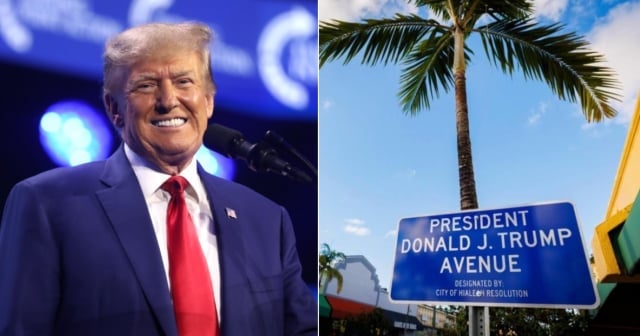The elected president of the United States, Donald Trump, is preparing a series of unprecedented measures to carry out what could be the largest deportation in the country's history.
His secret plan involves the use of legal tools, economic pressure, and diplomatic actions to compel countries to accept deported citizens, a maneuver that promises to reshape international migration policy.
One of the key components of this strategy is Section 243(d) of the Immigration and Nationality Act (INA). This provision allows the U.S. government to suspend the issuance of visas to citizens of countries that "unjustifiably deny or delay" the acceptance of deported individuals.
Journalist Mario J. Pentón interviewed immigration attorney Mayron Gallardo, who outlined some key aspects to consider on this topic.
"The Department of Homeland Security is governed by the executive branch. The fact that the president may exert pressure on these countries through visa limits or restrictions is entirely possible and is not a new practice," the lawyer noted.
"Work visas such as H1B visas, visas for athletes, artists, and individuals with extraordinary abilities, as well as agricultural worker visas, could indeed be affected very soon," said Gallardo.
Trump could implement this law to suspend visas for countries such as Cuba, Nicaragua, Venezuela, China, Russia, and India, all of which have historically been resistant to accepting deportees.
Additionally, Project 2025, developed by key figures of the incoming administration, outlines how to implement this law to ensure the cooperation of the countries involved.
Possible actions within Trump's strategy:
- Suspension of visasThe United States could stop issuing immigrant and non-immigrant visas to citizens of countries that do not cooperate with deportations.
- Economic pressureReintroduction of tariffs on neighboring countries, such as Mexico and Canada, to influence their immigration policies.
- Construction of detention campsTrump has hinted that he could expand the infrastructure to temporarily house deportees at the border.
- Massive raids in workplacesA tactic aimed at identifying and apprehending immigrants in an irregular situation.
- Military deployment at the borderUse of armed forces to strengthen immigration control measures.
In the fiscal year 2024, the United States issued a record 11.5 million visas, a figure that contrasts with the growing pressure to tighten immigration policies. Among the countries with the highest number of visas issued are Mexico, India, and China, two of which have been reluctant to accept deportations.
The implementation of these measures could have a significant impact on international relations and the visa system, testing the diplomatic alliances of the United States.
Meanwhile, the question remains how the affected countries will react to what seems to be one of the most aggressive migration strategies in recent history.
Frequently Asked Questions About Donald Trump's Mass Deportation Plan
What is Donald Trump's strategy for the deportation of immigrants?
The strategy is not yet fully known, but the new administration has made it clear that it plans to use legal measures, economic pressure, and diplomatic actions to force countries to accept their deported citizens. A key component is Section 243(d) of the Immigration and Nationality Act.
Which countries could be affected by the visa suspension under Trump's plan?
Countries such as Cuba, Nicaragua, Venezuela, China, Russia, and India could be the most affected, as they have historically shown resistance to accepting deportees from the United States. The implementation of this measure could have a significant impact on diplomatic relations with these countries.
What impact could the end of humanitarian parole under the Trump administration have?
The end of humanitarian parole could render hundreds of thousands of people eligible for deportation if they have not received asylum or obtained another legal status. This program has benefitted immigrants from countries such as Cuba, Haiti, Venezuela, and Nicaragua.
What do Americans think about Trump's deportation plan?
According to a Reuters/Ipsos survey, 82% of respondents believe it is likely that Trump will implement mass deportations. Immigration is seen as the primary challenge for the president-elect by 25% of participants, reflecting a divided public opinion between Democrats and Republicans.
What effects could Trump's immigration strategy have on the international relations of the United States?
The migration strategy could significantly alter diplomatic relations with the affected countries. By attempting to exert pressure through migration control, the United States may encounter diplomatic and economic tensions, particularly with nations like Mexico and Canada.
Filed under:
